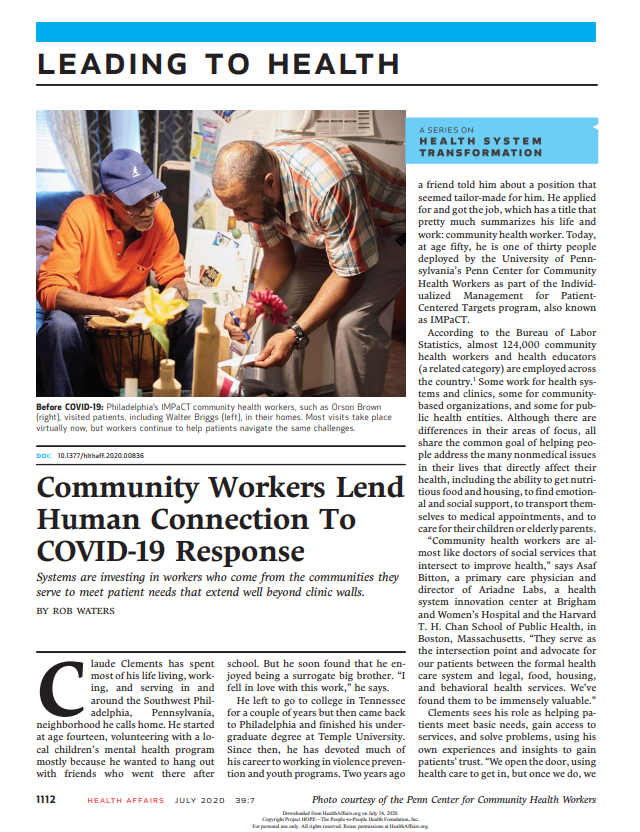
This article highlights how systems are investing in workers who come from the communities they serve to meet patient needs that extend well beyond clinic walls.
As people across the United States and the world grapple to survive and eventually emerge from the novel coronavirus disease (COVID-19) pandemic, a growing number of health planners and advocates propose hiring tens of thousands of additional community health workers to help.
An expanded community health workforce could respond to the enormous need for social, material and psychological support, helping people who have lost their incomes get food, strategize ways to pay their rent or mortgage, fill prescriptions, and figure out how to live more safely in crowded apartments. These needs are especially dire in low-income African American and Latino communities, which have been disproportionately afflicted by the virus.

 Back to Resources
Back to Resources